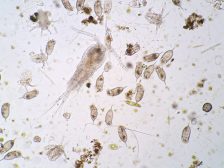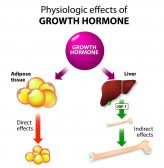Definition
noun
(1) The equilibrium constant for a reversible chemical reaction.
(2) The ratio depicting the concentrations when chemical equilibrium is reached, and expresses the extent to which equilibrium has favoured in either direction.
Supplement
The equilibrium constant is represented by Keq in an equation.
If Keq is greater than 1, it means the concentrations of the products are greater than those of the reactants.
If Keq is less than 1, it means the concentrations of the reactants are greater than the products.
If Keq is closed to the value of 1, then, that means there are roughly equal amounts of reactants and products at equilibrium. It also means neither forward nor the reverse reaction is favored. Conversely, a very large equilibrium constant may also indicate that backward (reverse) direction is favored to make reactants. (Ref. 1)
See also: chemical equilibrium, free energy.
References:
- The equilibrium constant K (article) | Khan Academy. (2020). Khan Academy. https://www.khanacademy.org/science/ap-chemistry/chemical-equilibrium-ap/equilibrium-constant-ap/a/the-equilibrium-constant-k







